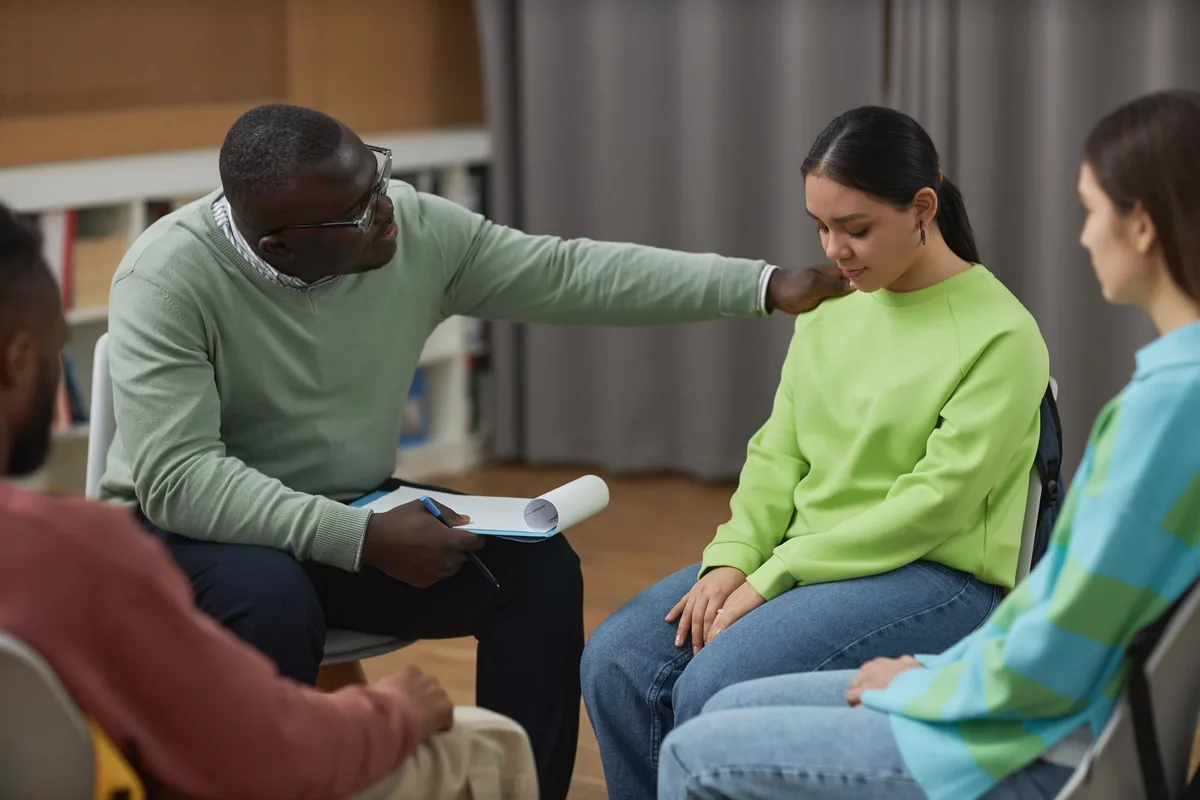24/7 Helpline:
(866) 899-221924/7 Helpline:
(866) 899-2219
Learn more about PTSD Rehab centers in Evangeline County
PTSD Rehab in Other Counties

Other Insurance Options

MVP Healthcare

Sliding scale payment assistance

Health Partners

UnitedHealth Group

Excellus

Highmark

UMR

Lucent

State Farm

Absolute Total Care

Magellan

Optima

Choice Care Network

Sutter

BlueShield

Anthem

EmblemHealth

CareFirst

PHCS Network

Amerigroup

Compass Behavioral Center
Compass Behavioral Center is a private rehab located in Mamou, Louisiana. Compass Behavioral Center ...
















Ville Platte Behavioral Health Clinic
Ville Platte Behavioral Health Clinic by Acadiana Area Human Services District provides comprehensiv...











































